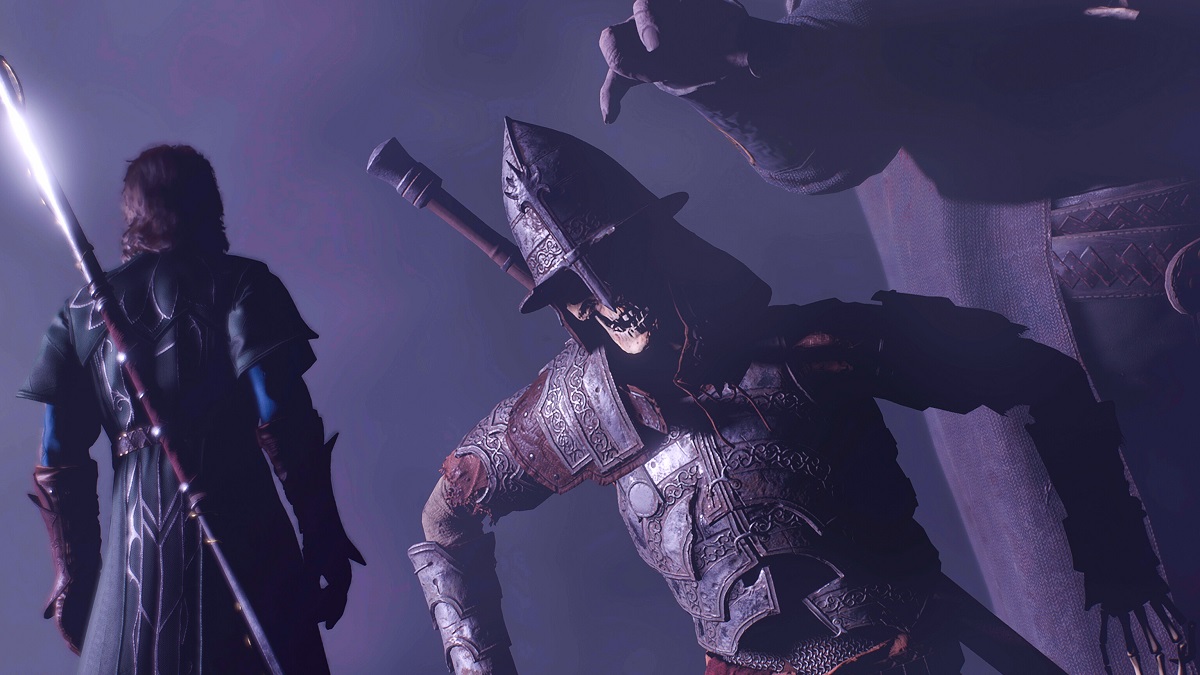My outlook on Tactician Mode in Baldur’s Gate 3 changed when a goblin first pushed Lae’zel into a bottomless chasm. It wasn’t necessarily a moment exclusive to this difficulty setting, but having what should’ve been an easy kill lead to a character’s death made me rethink how I approached battles going forward.
Generally, Baldur’s Gate 3 is a challenge on whatever setting you pick, but Tactician is brutal. The setting forces players into a new mindset: Fully take advantage of all the systems BG3 offers, or die. Honestly, it’s amazing how different the game feels with the difficulty spike, and I love it.
After finishing the campaign twice as custom characters, I figured I’d try something new and play as the bullish githyanki Fighter Lae’zel. To experience the world as she does, I emulated her struggle for survival and cranked the difficulty up to its hardest setting. Thus began an amazing and grueling journey where Scrolls of Revivify are treated like candy, and Withers is suddenly my best friend. So far, I’ve only logged about 15 hours, with me being a decent way into Act II, but my experience is a lesson in how far I can push BG3′s party.
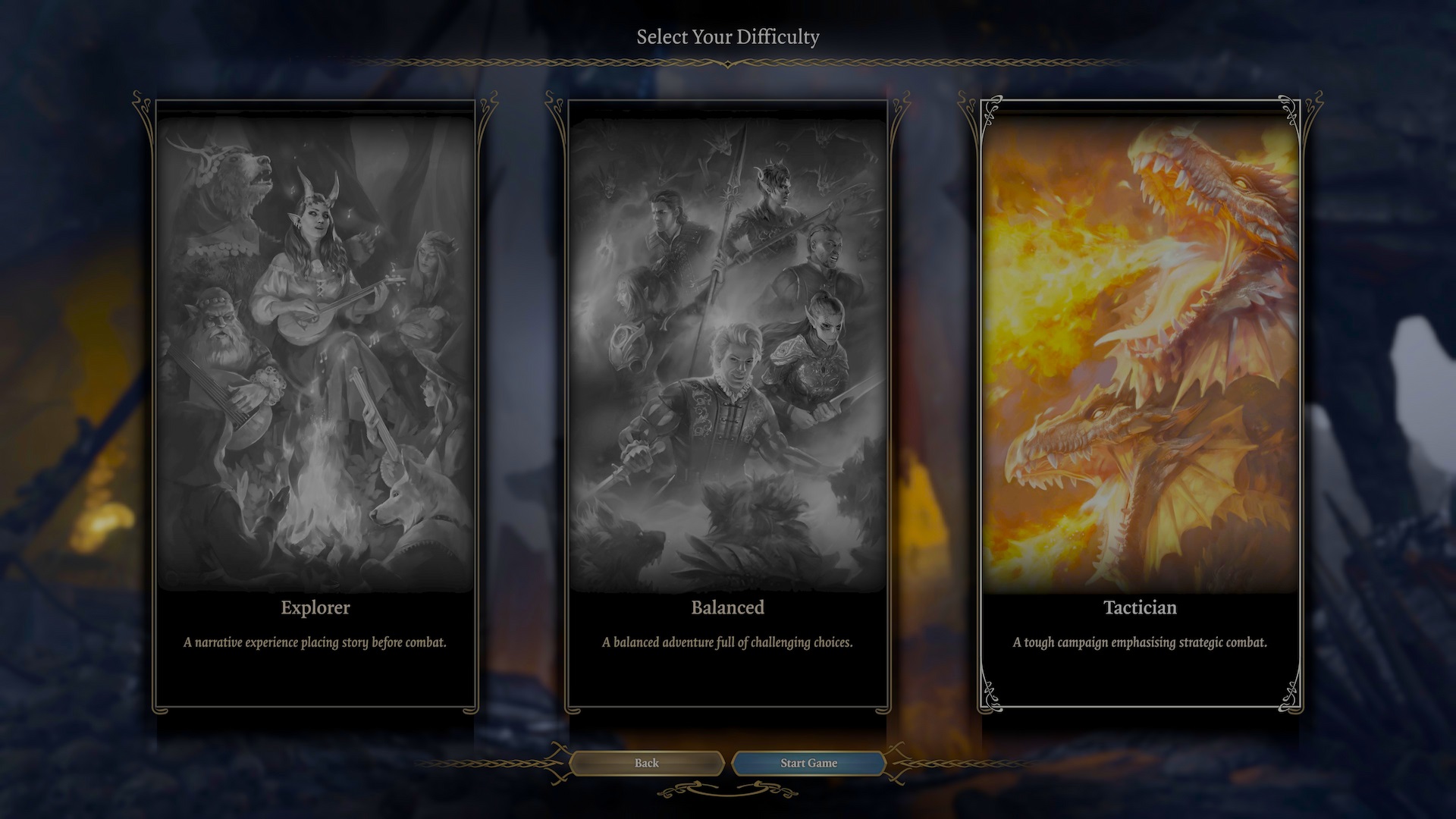
Screenshot via Destructoid
Why is Tactician so grueling in BG3?
Tactician’s one-liner in-game description notes it’s a “tough campaign” intended for anyone eager to experience “strategic combat.” That doesn’t do the difficulty justice, though. Balanced expects strategy, while Tactician pushes players to their limits. The former has challenging combat; the latter is a ruthless DM taking their frustrations out on players.
Enemies receive substantial buffs in Tactician, with the most evident being harder hits and far larger health pools. They also sport better equipment, namely more elemental arrows, ensuring the entire party joins in on the pain more often. AI improvements made most encounters a fight for survival, as enemies utilized their newfound smarts to make life a living hell.
Some hours into the campaign, I considered giving up. Admittedly, I’m not great at CRPGs in general, and I was questioning why I wanted to challenge myself even further. With the changes to combat, Baldur’s Gate 3 felt like a slog because, to me, the default setting was challenging enough. There were even points where constant deaths and overwhelming brutality became less frustrating and funnier, given how often party members crucial to specific plans would go down before they could even begin their turn.
I was cracking, but amidst those cracks was one where light shone through, and everything suddenly clicked. Baldur’s Gate 3 isn’t at its worst here in this setting. Rather, I was in the wrong and stubbornly sticking to habits formed mindlessly playing through Balanced. Like a follower of Loviatar, I learned to embrace the pain and worked with it. If I hadn’t, there would have only been suffering.
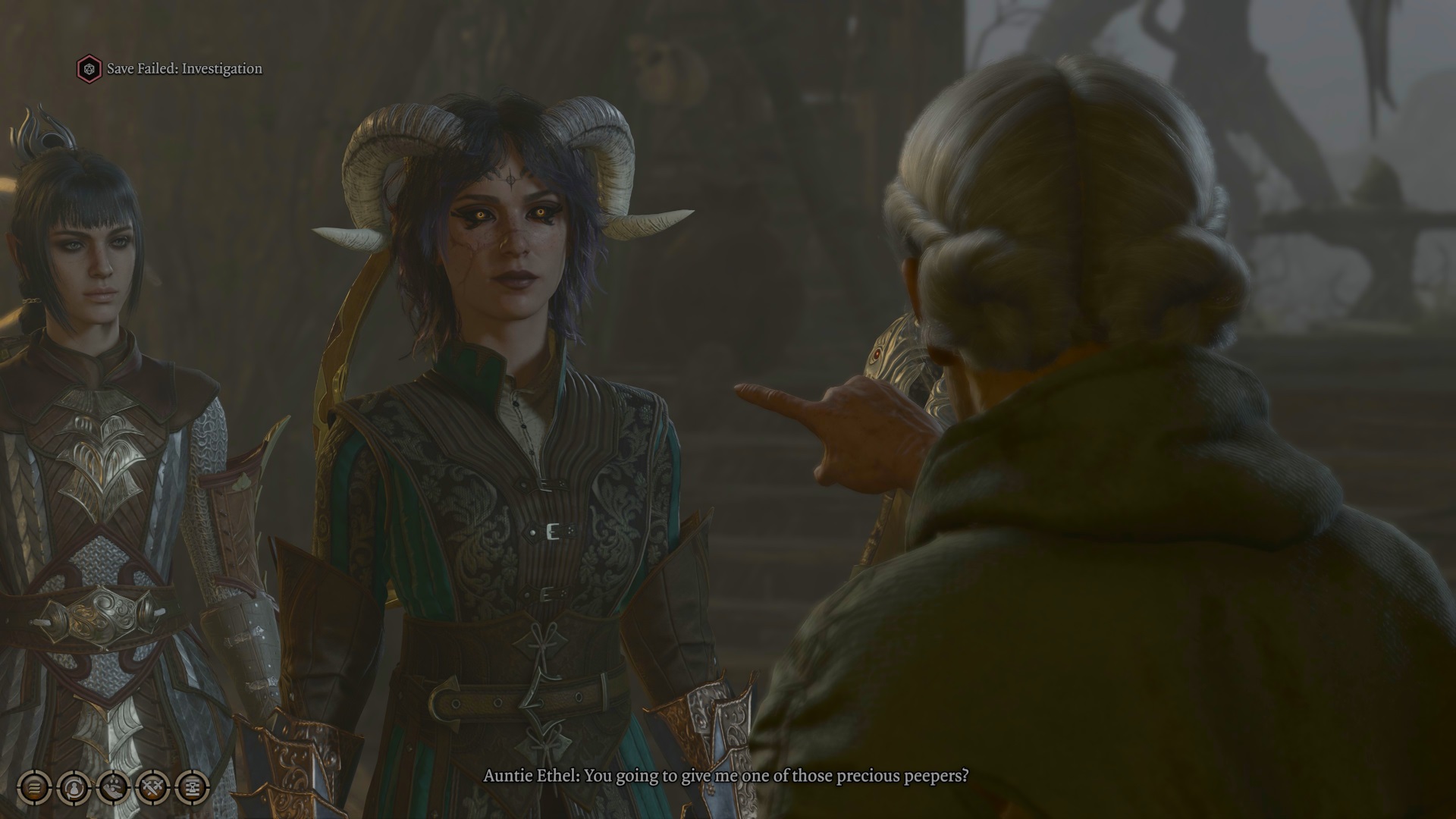
Screenshot via Destructoid
Falling in love with Tactician Mode
There wasn’t one specific change that made me fall for Tactican; it just somehow happened. I looked into guides after realizing something needed to give, and those helped to some degree. But what I really needed was to ultimately pay better attention to what was available.
In previous playthroughs, the first fight with Auntie Ethel is fun, if not grating, because of her clones. With some decent planning during the fight, it’s not too bad to overcome in the normal setting. However, Tactician forced me to change. The witch kept killing me, so I’d have to restrategize long before the encounter began. She spawned clones as soon as the fight started, and they systematically took turns picking off my team. For a while, I was at a loss, then took a step back to examine the arena and my party’s kit. The fight wouldn’t trigger until standing at a specific point, leaving room open for the team to spread.
The clone’s attacks lacked their previous focus as a result. This left everyone still up and allowed me to go forward with my plan. Since Astarion and Gale had access to Magic Missile, they dispatched the clones, leaving the real Ethel open for Lae’zel and Karlach to attack. It was a simple change in how the fight played out, but it showed how effective strategy can turn fights around.
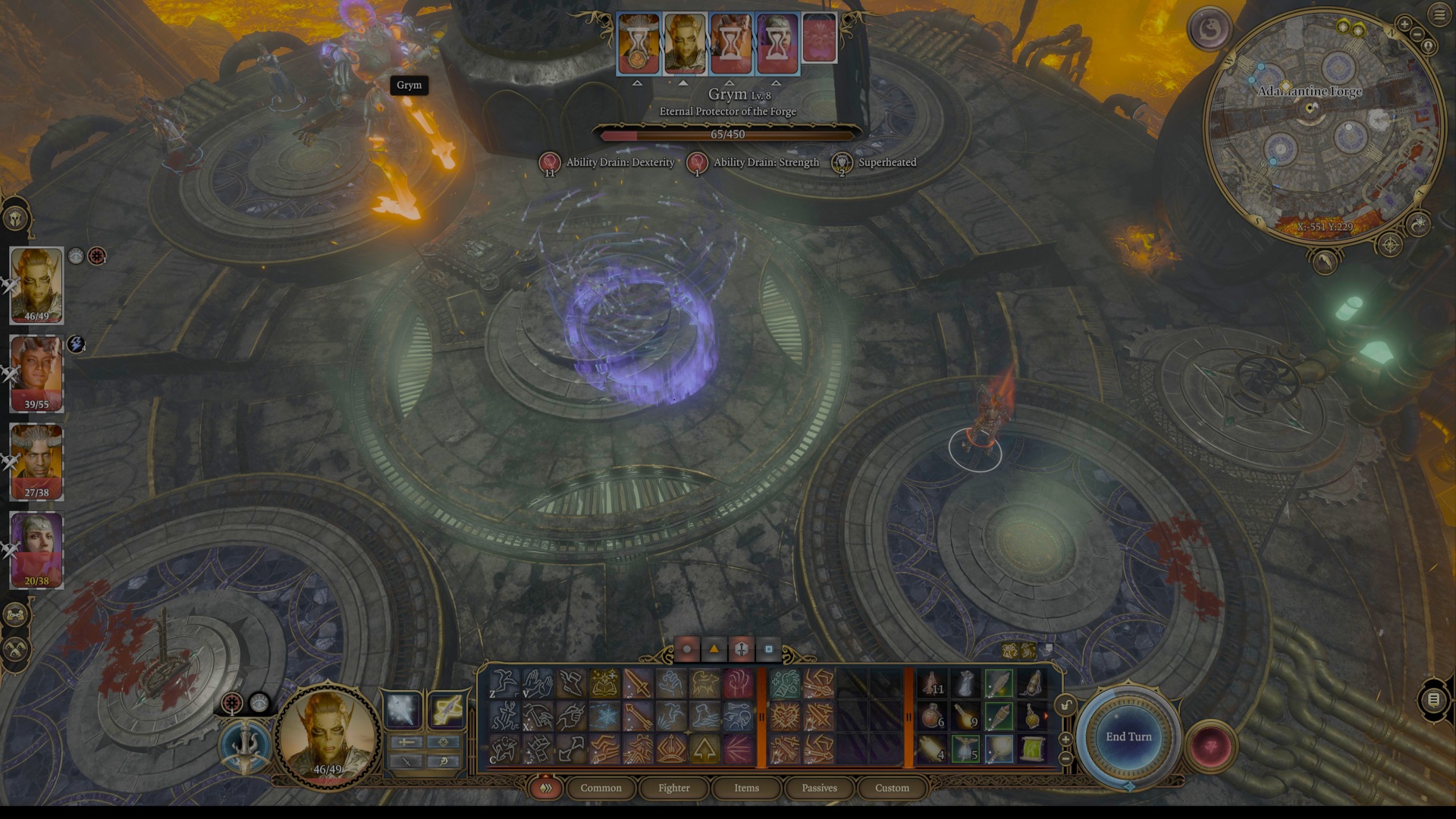
Screenshot via Destructoid
Positioning is key in BG3
A little positioning saved me again against the Grym. Initially, I positioned Shadowheart and Karlach on one side of the map with Lae’zel and Wyll on the other. The plan was to scatter attention, bait the boss onto the forge, and then slam it shut, but it refused to comply with attempts to turn it to scrap.
I had to switch things up a little to win this one without turning the encounter into an endurance match. Everyone’s positions remained the same, but I found a rhythm for baiting the boss from one side of the arena to the other. Through trial and error, I realized I’d need to juggle who was attacking to take advantage of the boss’s targeting parameters. The Grym targets the last person who hit it.
I didn’t want to change the construct’s course, so I only used actions that wouldn’t trigger opportunity attacks. Wyll’s convenient new position also let me cast Cloud of Daggers, damaging the construct in a way that didn’t draw aggro. Even with a beefy new HP bar, the Grym’s potentially grueling encounter didn’t take me any long, as the battle turned into a game of tag it couldn’t win. It wasn’t something I would have thought of in other playthroughs because BG3 never forced that consideration.
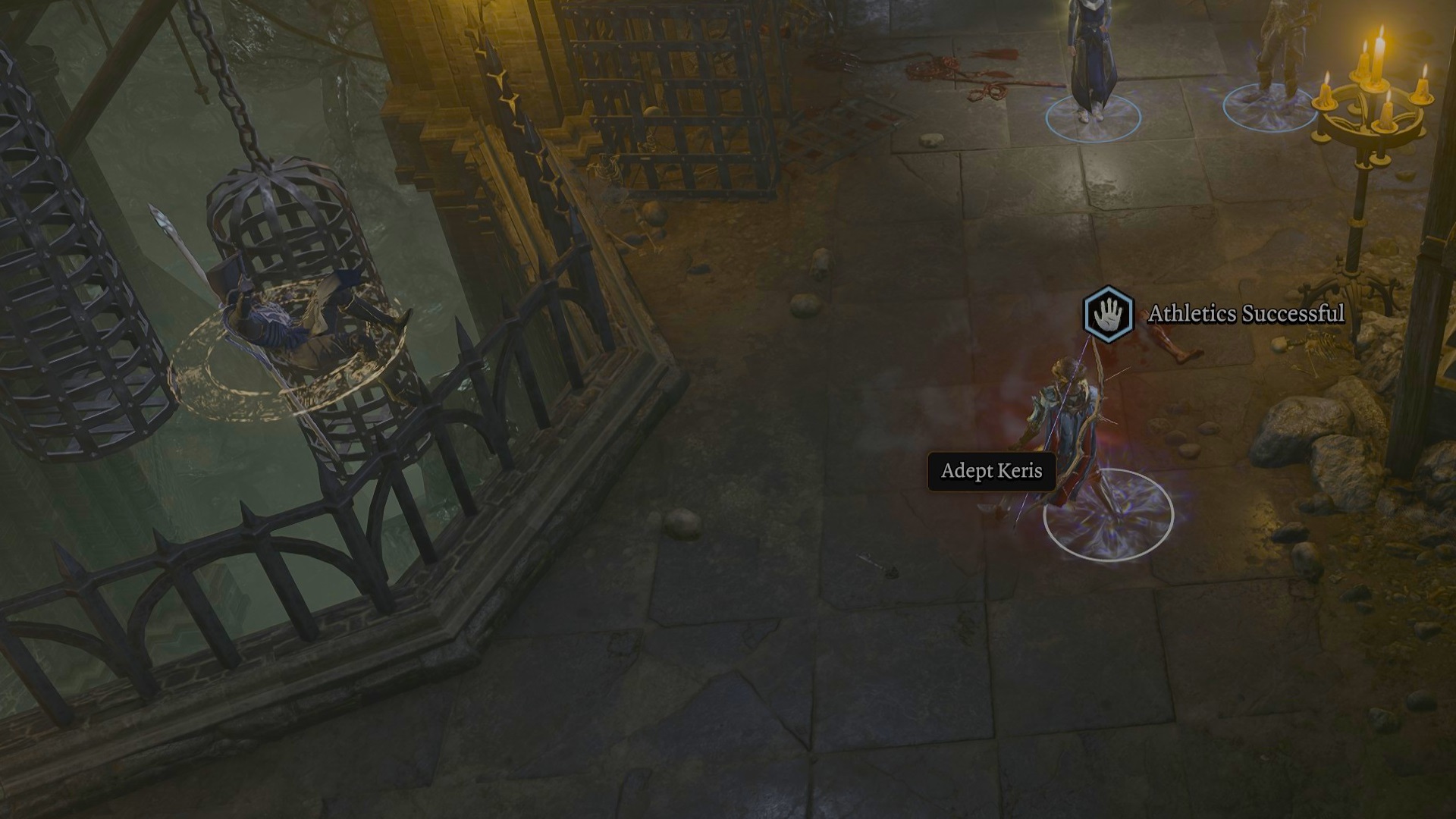
Screenshot via Destructoid
All differences in BG3 Tactician mode
Tactician mode is harder than Balanced, but that doesn’t exactly explain how it is. Additions such as more advanced combat AI are what make it a blast to play through. Others, like increased HP and enemy attack rolls, can make the experience more frustrating. It still helps to know exactly what you’re signing up for when choosing this difficulty.
- Enemies receive a 30% boost to HP
- Enemies also receive a +2 for saving throws and attack rolls
- AI combatants react to their environment more (i.e. pushing foes off cliffs more or triggering explosives when needed)
- They will also use items such as grenades or potions more often
- AI combatants also target opponents with low AC first and will kill downed allies
- Long rest requirements double from 40 to 80
The long rest requirement change isn’t as bad as it seems. Food is plentiful in Baldur’s Gate 3, so there’s no need to worry about running out unless a string of combats go wrong. Resource management is more crucial since the AI’s tactics will lead to using spells like Revivify more often. Otherwise, Withers will eat through your gold fast.
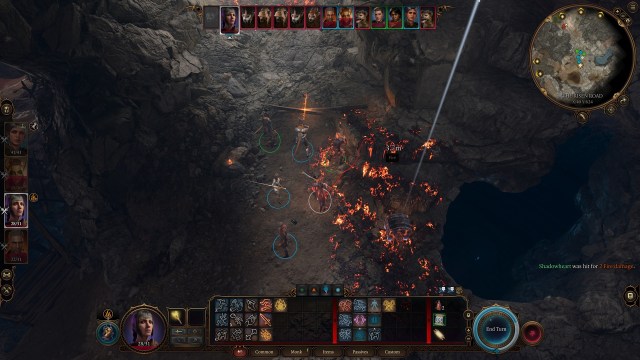
Is Tactician mode for you?
Tactician mode in Baldur’s Gate 3 is unforgiving and brutal. It can feel like an absolute slog at times and probably induce a frustrated yell or two. At the same time, it’s amazing at teaching players how to really take advantage of its tactical systems and learn classes. It requires studying arena layouts, environmental hazards, and team builds. I’m still not done with my own journey, but it’s become my definitive way to play.
It’s by no means ideal for everyone; Tactician is demanding and can ask for too much. Even if not for the combat, Baldur’s Gate 3 is well worth the time for the story, cast, and well-written dialogue, so it’d be a shame to skip it over a harsh difficulty curve. However, when everything clicks and a carefully thought-out plan goes well, the combat shines brightest and delivers the RPG’s most satisfactory moments.
It’s a little ostentatious to say Tactician is the “correct” way to play Baldur’s Gate 3, but sometimes I feel that way thanks to how well it flows. In hindsight, those initial hours of suffering were more additive, not punitive, thanks to a new appreciation for all of my combat options. Baldur’s Gate 3 is fantastic no matter what you choose, but Tactician made me fall in love all over again.
